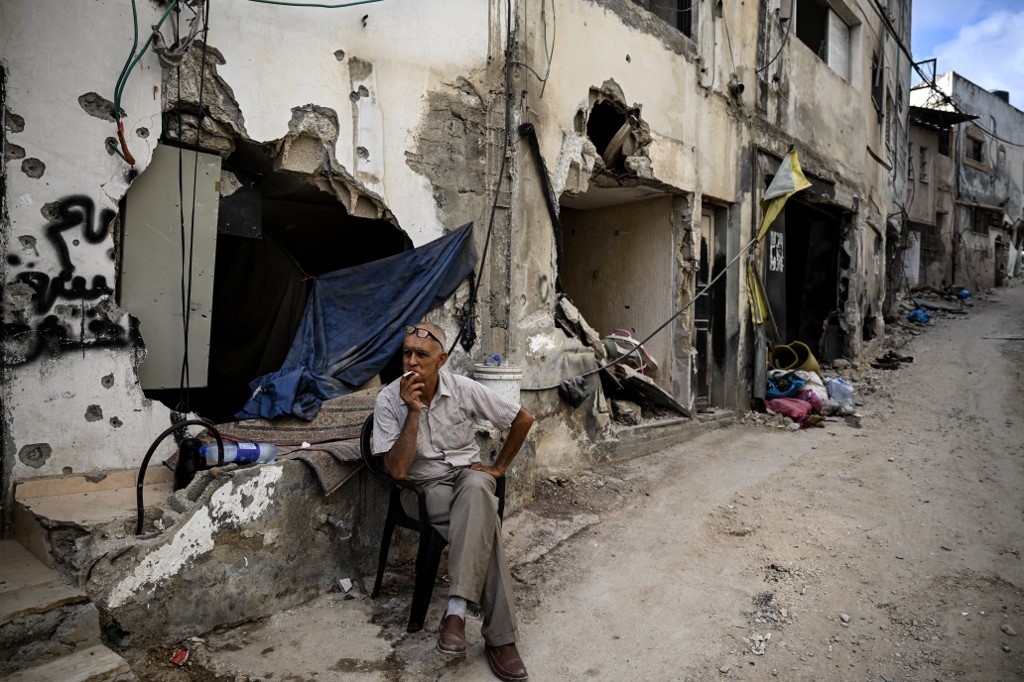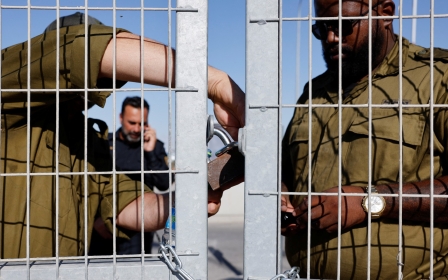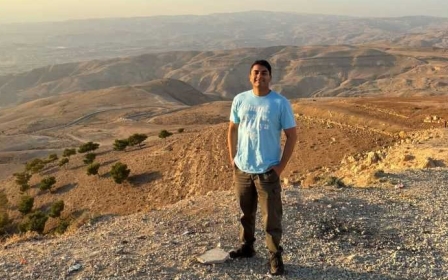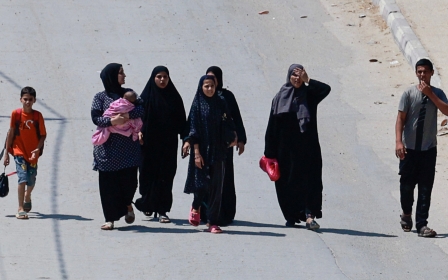Israel pulls out of Jenin, but denies end of West Bank offensive

Israeli forces have pulled out of Jenin after a 10-day assault, but the military has denied it is ending its operation in the occupied West Bank.
The offensive, which has so far left at least 39 Palestinians dead, saw soldiers backed by armoured vehicles and bulldozers targeting the city and its adjacent refugee camp, forcing the flight of many of the residents.
Tensions in the West Bank were raised even further on Friday when a US citizen was reportedly shot dead by Israeli troops near Nablus.
Palestinians started returning to their Jenin homes on Friday, while those who had been trapped by the offensive were able to venture outside for the first time in more than a week.
One resident of the refugee camp said the Israelis left early in the morning.
New MEE newsletter: Jerusalem Dispatch
Sign up to get the latest insights and analysis on Israel-Palestine, alongside Turkey Unpacked and other MEE newsletters
"We didn’t leave the house for 10 days during this operation, myself, my children, and my husband’s family," she told Middle East Eye.
The assault on the camp left them without electricity or water for days.
'We didn’t leave the house for 10 days during this operation, myself, my children, and my husband’s family'
- Jenin camp resident
When they finally went outside on Friday, the resident said it looked as though "a big bomb had fallen".
"Many houses are destroyed, and there are other houses they used as military bases, but they destroyed the furniture and created destruction in the houses," she said.
"We heard explosions day and night all 10 days, and we couldn’t know where they were coming from - we didn’t have internet or communication so we couldn’t check where its coming from."
Israeli began its operation on 28 August, targeting cities and towns across the West Bank.
The army said it had killed 14 Palestinian fighters in Jenin, including a Hamas commander, and detained 30 wanted people.
A 16-year-old girl was among those shot dead in the operation, after Israeli soldiers surrounded a neighbouring house on Tuesday just outside Jenin.
Israel said on Friday that it would continue its operation in Jenin until its "objectives are achieved".
On Friday, Palestinian media said a 13-year-old named Bana Amjad Bakr died after being shot in the chest by Israeli forces in Qaryut village, south of Nablus.
Foreign criticism
Israel's actions in the West Bank, happening concurrently with the ongoing assault on the Gaza Strip, have provoked criticism from some of its traditional allies.
During a visit to Israel on Friday, German Foreign Minister Annalena Baerbock criticised hawkish statements by Israeli officials about the West Bank.
"When members of the Israeli government themselves call for the same approach in the West Bank as in Gaza, that is precisely what acutely endangers Israel's security," Baerbock said during a news conference.
'They make it unlivable for us so we leave. But we won’t leave our lands and our homes'
- Jenin camp resident
Her comments referred to calls from a number of Israeli government officials for the West Bank to face a similar fate to Gaza.
Itamar Ben Gvir, Israel's far-right national security minister, said in a post on X on Friday that he had asked Netanyahu to make the defeat of Hamas "and other terrorist organisations" in the West Bank one of the aims of the war in Gaza.
He said that it was necessary to prevent another attack similar to the one on 7 October, in which more than 1,100 people were killed in a Hamas-led assault on Israel.
A report in Israel Hayom on Tuesday suggested the military was currently treating the occupied West Bank as “the second most critical front” after its war on Gaza.
Since 7 October, attacks by the Israeli army and settlers in the West Bank have left 691 Palestinians dead.
The report by Israel Hayom suggested that a further series of raids was imminent and the operations were set to continue for “the foreseeable future”.
Baerbock warned that "anyone who attacks people, drives them out of their homes or even kills them must be held accountable and severely punished".
She also warned the Israelis against continued illegal settlement construction in the West Bank, which Israel has occupied since 1967 and where more than 700,000 Jewish settlers now live.
"The Israeli government could regain lost international trust, in my view, by stopping the current settlement projects as a first step," she said.
'Expansion of resistance'
Israel on Thursday said it killed six fighters from Islamic Jihad in the town of Tubas and in a nearby refugee camp in the West Bank in a drone strike.
The military operation in the West Bank has involved hundreds of Israeli soldiers, police and intelligence officers backed by helicopters, drones and armoured vehicles.
Ten people have been killed over the past week in Tubas, a city in the northern Jordan Valley.
Hamas has called for the “expansion of resistance” in the West Bank, which is governed by the Palestinian Authority that is dominated by Hamas' rival Fatah.
“Our people … across the West Bank should work on strengthening and engaging with the resistance because the occupation’s plan is to target every house, every village, and every street,” senior Hamas official Abdulrahman Shadid said.
It is an “ethical, national, and religious obligation”, he said, adding that the Palestinian people will not “give in to the enemy”.
Refugee camps across the West Bank largely house Palestinians driven out of their homes in the 1948 Nakba that saw the creation of Israel, as well as their descendants
The Jenin camp resident, whose family were expelled from the coastal city of Jaffa in 1948, said that she had lived through many repeated Israeli operations and knew mothers who had lost three or four children, but would remain undeterred.
"I will never leave the refugee camp. I know that one of the aims of the [Israeli army] is to push people to leave, to emigrate," she said.
"They make it unlivable for us so we leave. But we won’t leave our lands and our homes... how do they expect that people can simply be transferred from their lands and forget about it?"
Middle East Eye delivers independent and unrivalled coverage and analysis of the Middle East, North Africa and beyond. To learn more about republishing this content and the associated fees, please fill out this form. More about MEE can be found here.





